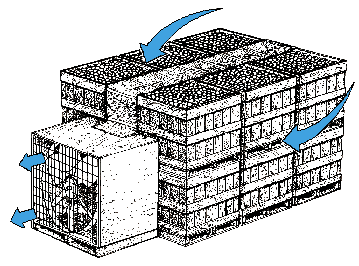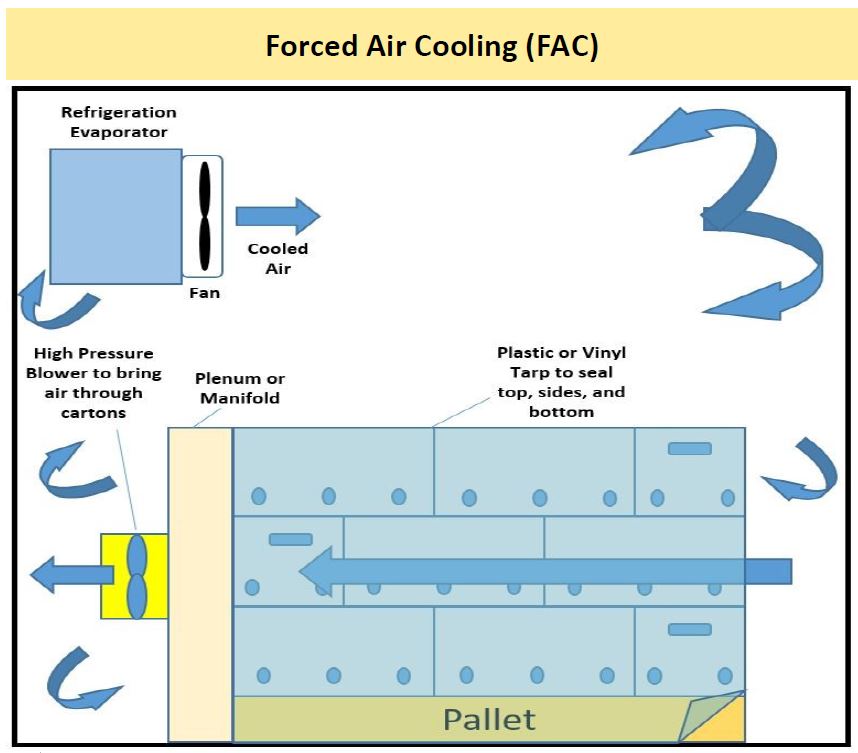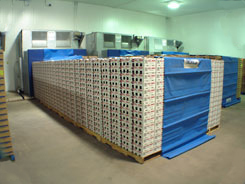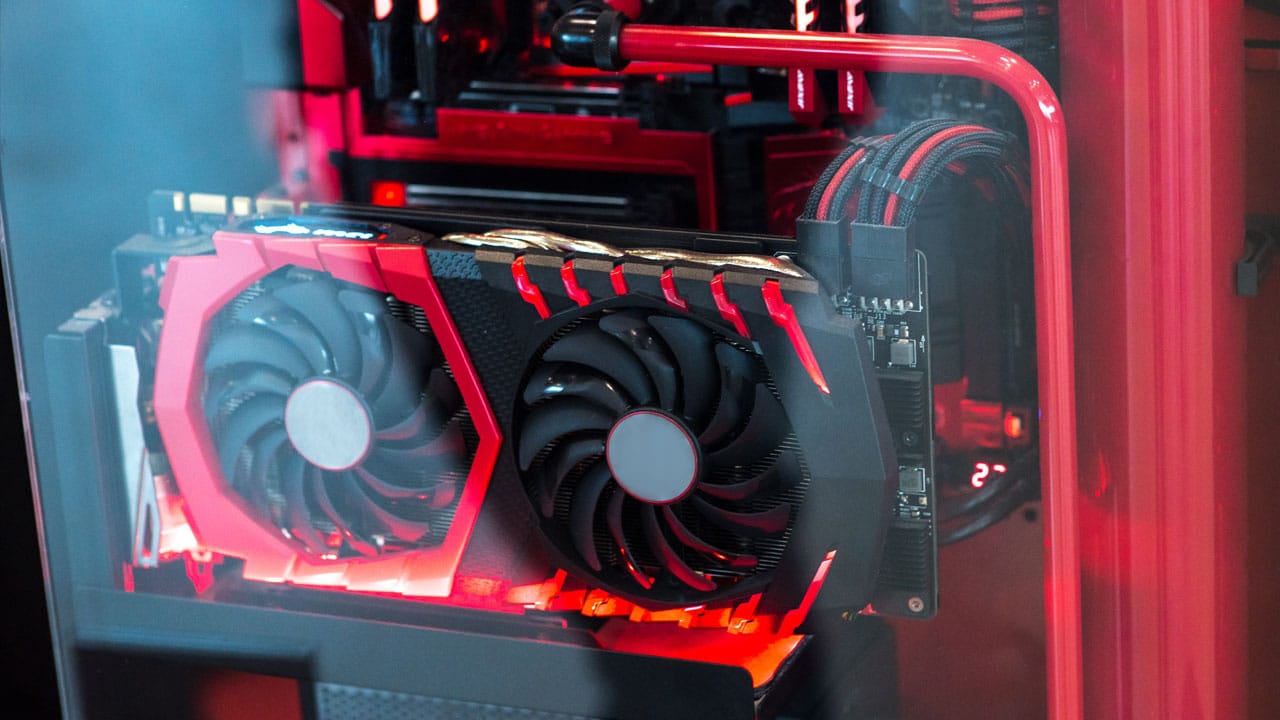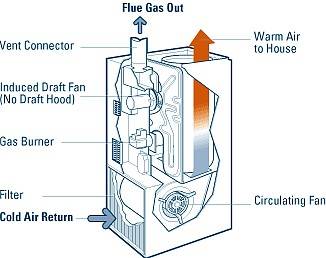For example forced air cooling of electronic components in an industrial setting is significantly more efficient than convection cooling as it reduces air temperature in the general vicinity of the components being cooled and improves the heat transfer coefficient.
Forced air cooling fan.
Forced air cooling the air circuit layout is an important element in determining the pressure drop in air moving through a package.
Reduction in the temperature of the air in the vicinity of the components being cooled.
These transformers generally have a dual load rating one for aa self cooling natural air flow and a larger load rating for fa forced air flow.
But it essentially borrows the delivery system to.
The choice of fan particularly for an enclosed pcb can have a significant impact on the overall lifespan of a system.
Forced air cooling is accomplished by exposing packages of produce in a cooling room to higher air pressure on one side than on the other.
Invariably the cooling will involve a fan of some kind.
Most systems and particularly those that employ an enclosure will use some form of forced air cooling.
These transformers have a fan or fans providing additional forced air cooling.
The central ac system is independent of your furnace using an outdoor unit that is not connected to the furnace at all.
Fans may be wired to start automatically when the temperature reaches a pre set value.
Get free shipping on qualified forced air furnaces or buy online pick up in store today in the heating venting cooling department.
Forced air cooling is an efficient way of implementing effective thermal management for an enclosed pcb and choosing the correct fan for the application is vital.
Instead it s very common to use one or more fans to force the air at a known volume and velocity through the enclosure or chassis to obtain the needed thermal relief for hot ics resistors motors and other components.
Changes in air flow direction constriction of the air channel and use of auxiliary devices such as finger guards filters and louvers increases the pressure drop in an air stream.
This effectiveness is the result of the following.
Forced air cooling is advantageous in a number of different scenarios.
This pressure difference forces the cool air through the packages and past the produce where it picks up heat greatly increasing the rate of heat transfer.

